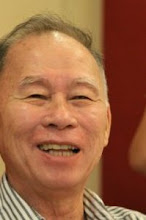My salute to your
editorial entitled Weak Regulation.
Allow me to add my sangkusing on this issue, using the
following blog that I sent to Mr. Rey D. Gamboa a few months ago.
It is heartening to read your column of May 9, 2013 which dealt on a
wish-list of laws that you believe needs to be urgently enacted by the incoming
Congress to sustain the country’s economic growth. Especially noteworthy is the
proposal on economic labor zones with
its gain-sharing scheme – a move that will perk up manufacturing activities and
thus increase employment opportunities.
Another proposal that caught my attention
was the splitting of DOTC, which is currently dancing the slow-drag. Transportation
covers land, air and water transport systems, which, if brought up to 21st
century standards, would efficiently carry passengers, tourists and cargo to
their destinations at a cheaper and faster rate. Admittedly hi-tech communications
and information technology should be a separate department that will handle
communications, bandwidth allocation, radio TV licensing, railroad and utility
post/tower, right of ways among others.
In addition to the above, let me present a novel idea that
the new upgraded legislators should seriously consider - to give prominence to
the role of the non-profit sector in nation-building.
It is now acknowledged that most of the country’s new-found impressive
economic gains have been going to the elite. Inequality has risen as globalization deepened. The rich are getting richer, the poor are getting
poorer and the middle class fast disappearing.
I do believe that this proposal can move the great mass of our humanity
forward.
I was involved in the operation of a health care foundation for a couple
of years, but it was a total exercise in futility. Because of the prevailing suspicion
that foundations are being used as
tax shields and for tax avoidance without doing service to the country or its
avowed beneficiaries, the old Finance Department discouraged NGOs to
take on quasi for-profit operations, such as selling services and goods at
discounted rates, even if the “profit” generated was earmarked to the support
the foundation’s just cause. Also, non-profit organizations are legally limited
to use only 30% of all receipts and donations received on all administrative
requirements, which, of course, includes salaries, advertising, marketing, as
well as all contracted services.
This practice follows two rulebooks. We have one for the non-profit
sector and one for the rest of the economic world. It is an apartheid
that discriminates against non-profit organization in five different areas
that need to be corrected.
Our legislators should find ways to allow NGOs to put the following five
things together:
1. They can use money to
lure talent away from the for-profit sector.
2. They can advertise on
anywhere near the scale that the for-profit sector does to generate
donations world-wide.
3. They can take the kinds of
risks in pursuit of those customers that the for-profit sector
takes, such as hiring professional fundraisers. Fundraising has the
potential to multiply the amount of money available for the cause that we
care about so deeply.
4. They be allowed a longer
gestation period similar to the amount of time for the for-profit sector.
5.
NGOs need to be allowed to take on quasi for-profit
operations, such as selling services and goods at discounted rates, to make up
for the extreme disadvantage of the non-profit sector because non-profits do
not have stake-holders providing capital and motivation.
At this point, there
are 2 things that should be considered.
·
It is important for legislators to review the
charter of the Philippine Charity Sweepstakes Office (PCSO). Being government,
PCSO has been subjected to political misuse, over-use and abuse. But this
charter can serve as model on what legislators can creatively do to enable the
shift of wealth being generated from the very profitable conglomerates towards
the lowly non-profit sector.
·
Our enlightened legislators
should also consider built-in safeguards against opportunists. Currently NGOs’
watchdog is supposed to be the Philippine Council for NGO Certification (PCNC)
– private group of NGOs that signed a Memorandum of Agreement with the defunct Department
of Finance. Previous to PCNC, the job was given to NEDA. It was given the
authority to certify NGOs applying for donee institution status based on specific
standards. The certification should then serve as a basis for the BIR to grant
donee institution status. It was envisioned that this certification process
would encourage local donations to NGOs so significant at this time when
resources channeled to social development projects, particularly from foreign
donors, are relatively diminishing. PCNC
exists largely to pursue tax incentives for donors to NGOs.
Evidently, our new legislators can create a law
expanding the role of PCNC to allow the non-profit sector to absorb a bigger
share of the new-found economic pie. As we now find out, the empowered NGO
watchdog should be able to prevent the criminal diversion of scarce funds
intended to uplift poverty by pseudo-fundraisers and other NGOs. This move should be able to
do a better job at lifting the majority from poverty than the CCT dole-outs.



